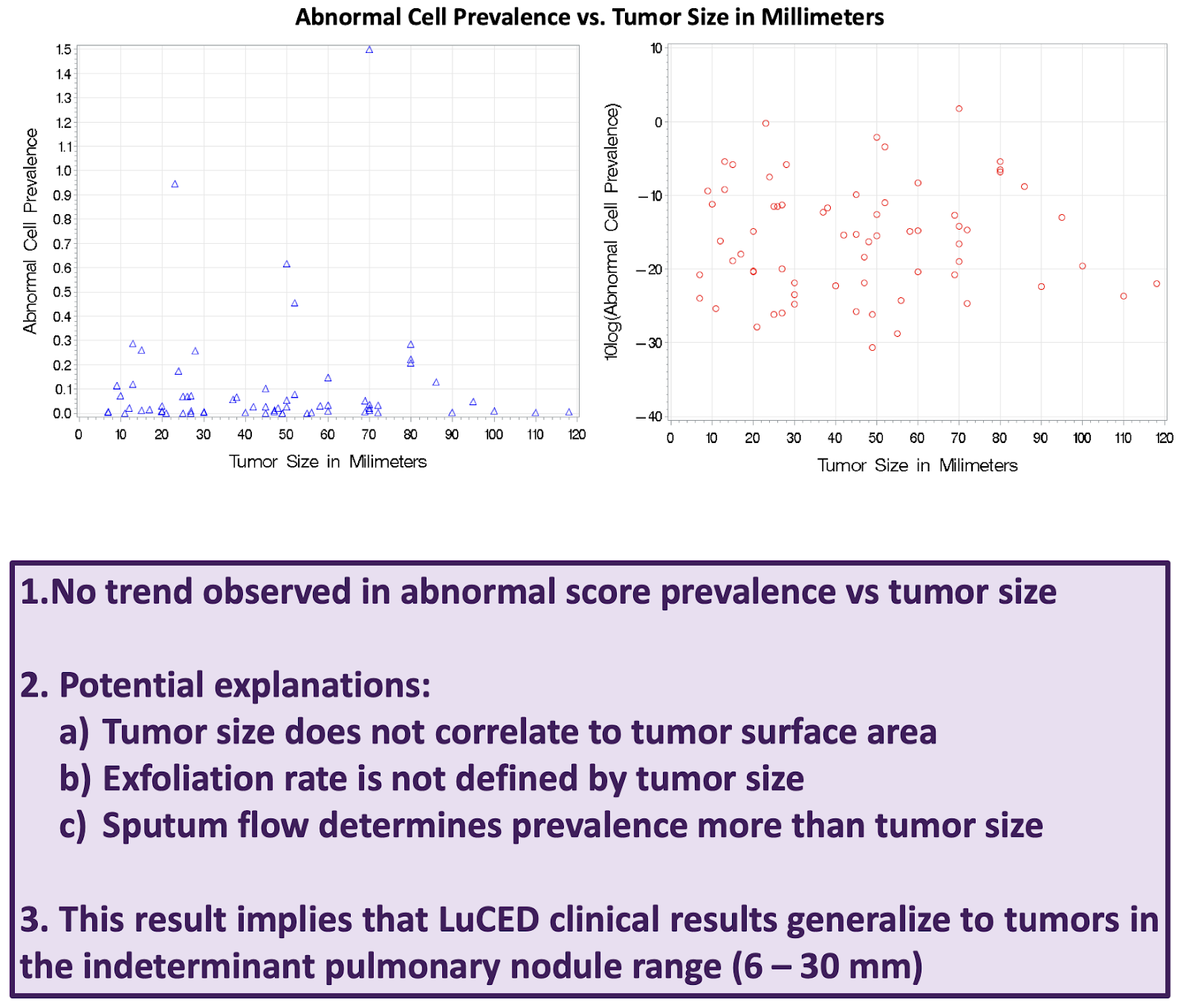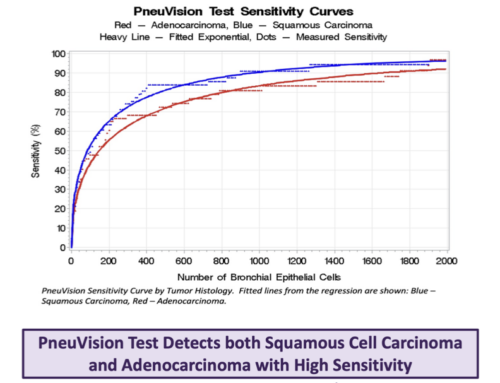VisionGate Presents at the World Conference on Lung Cancer for 2017 in Tokyo: Effect of Tumor Size on the Sensitivity of the Non-Invasive LuCED® Test for Lung Cancer

Effect of Tumor Size on the Sensitivity of the Non-Invasive LuCED® Test for Lung Cancer
Authors: Meyer, Katdare, Presley, Wilbur, Zulueta, Nelson
Abstract:
Background: The LuCED® test is based on analysis of sputum by the Cell-CT® platform that computes 3D images of cells with isometric resolution, allowing orientation-independent measurements of 704 3D structural biomarkers to generate a probabilistic score to identify abnormal cells. Published studies of LuCED accuracy show 92% sensitivity and 95% specificity for biopsy confirmed cancer that was consistent by tumor histology and stage. Early stage tumors are generally smaller in size. One view is that smaller tumors might exfoliate fewer abnormal cells into sputum, making early stage tumor detection less likely. Here, we test the hypothesis that tumor size is a primary determinant of LuCED sensitivity.
Methods: Sputum samples from 74 biopsy confirmed non-small cell lung cancer cases were studied. The tumor size (mm) was characterized as the maximum tumor dimension supplied by the clinic. The numbers of bronchial epithelial cells and abnormal cells in sputum were measured and confirmed by cytological review. Tumor cell prevalence was characterized as (abnormal cells)/(bronchial epithelial cells) and plotted versus tumor size to assess any trend towards lower abnormal cell prevalence with decreasing tumor size.
Results:

Conclusions: No trend was observed that might support the hypothesis that lower abnormal cell prevalence would occur with smaller tumor size. Moreover, variance in abnormal cell prevalence for any tumor size is large, suggesting that factors other than tumor size are more important in determining prevalence. There is no evidence to suggest that the LuCED test sensitivity decreases for smaller tumors, and this further suggests that early stage cancer, where tumors might be smaller, can still be detected. Published data shows that the LuCED test is 92% sensitive to stage 1 lung cancer.


